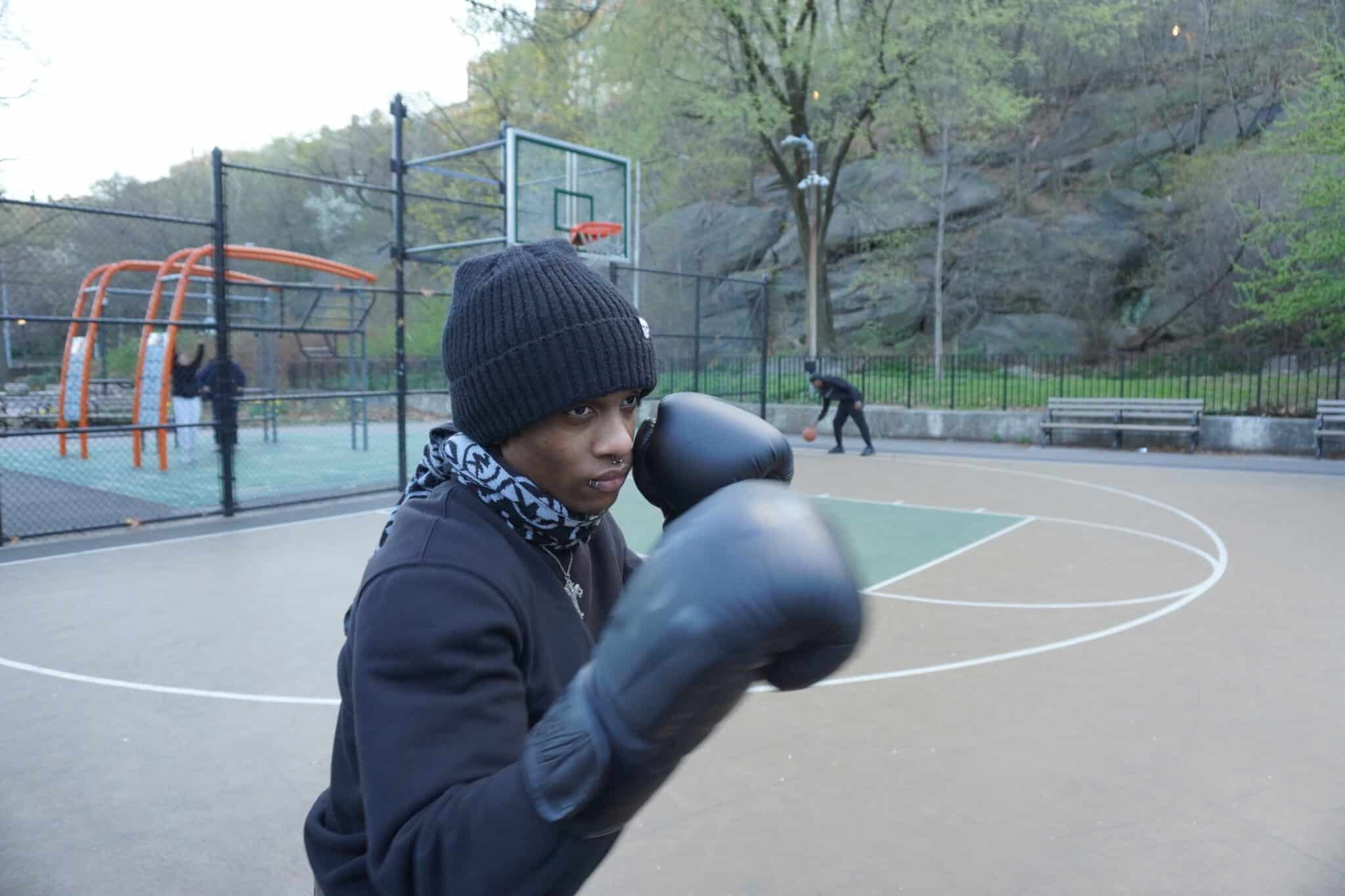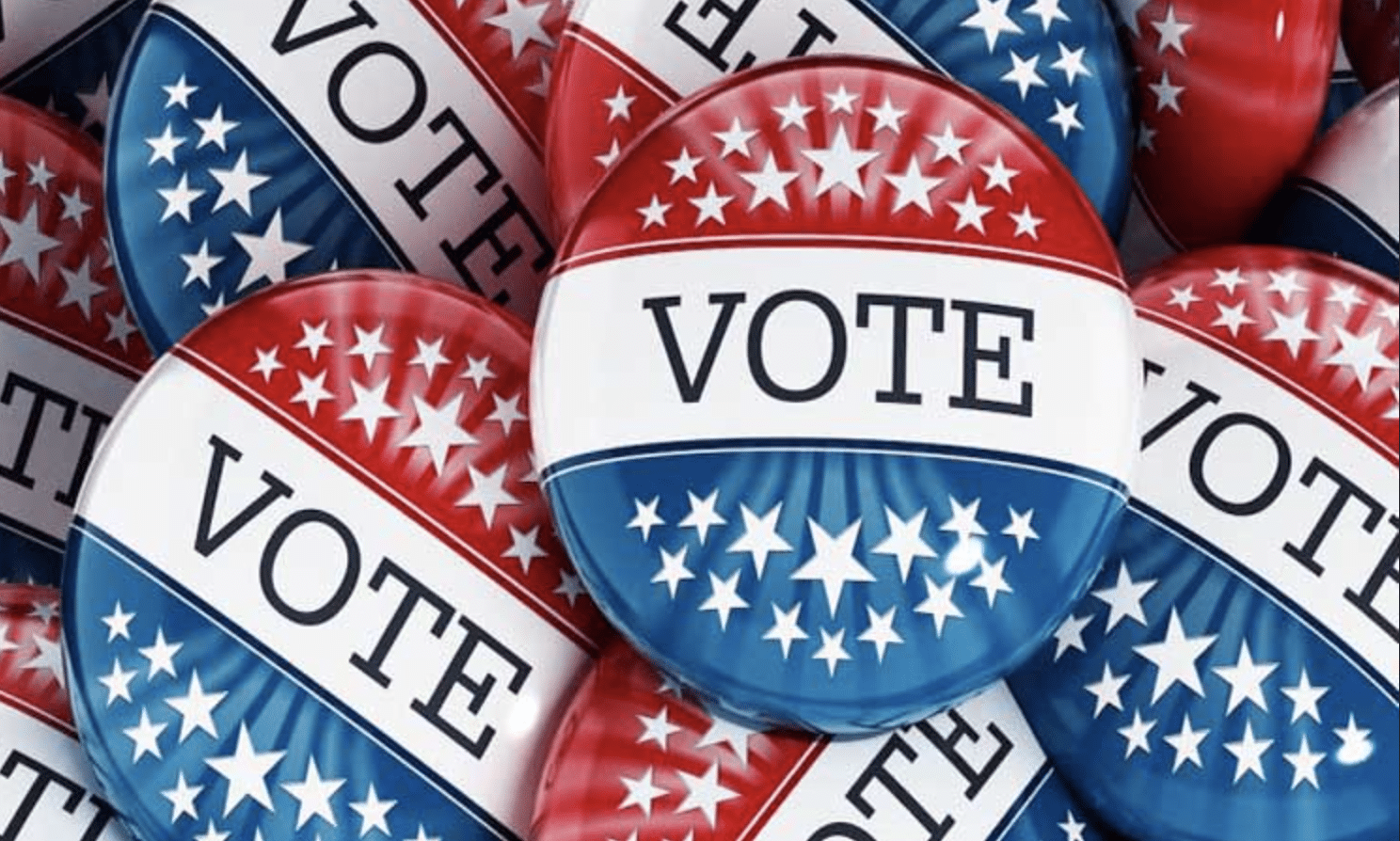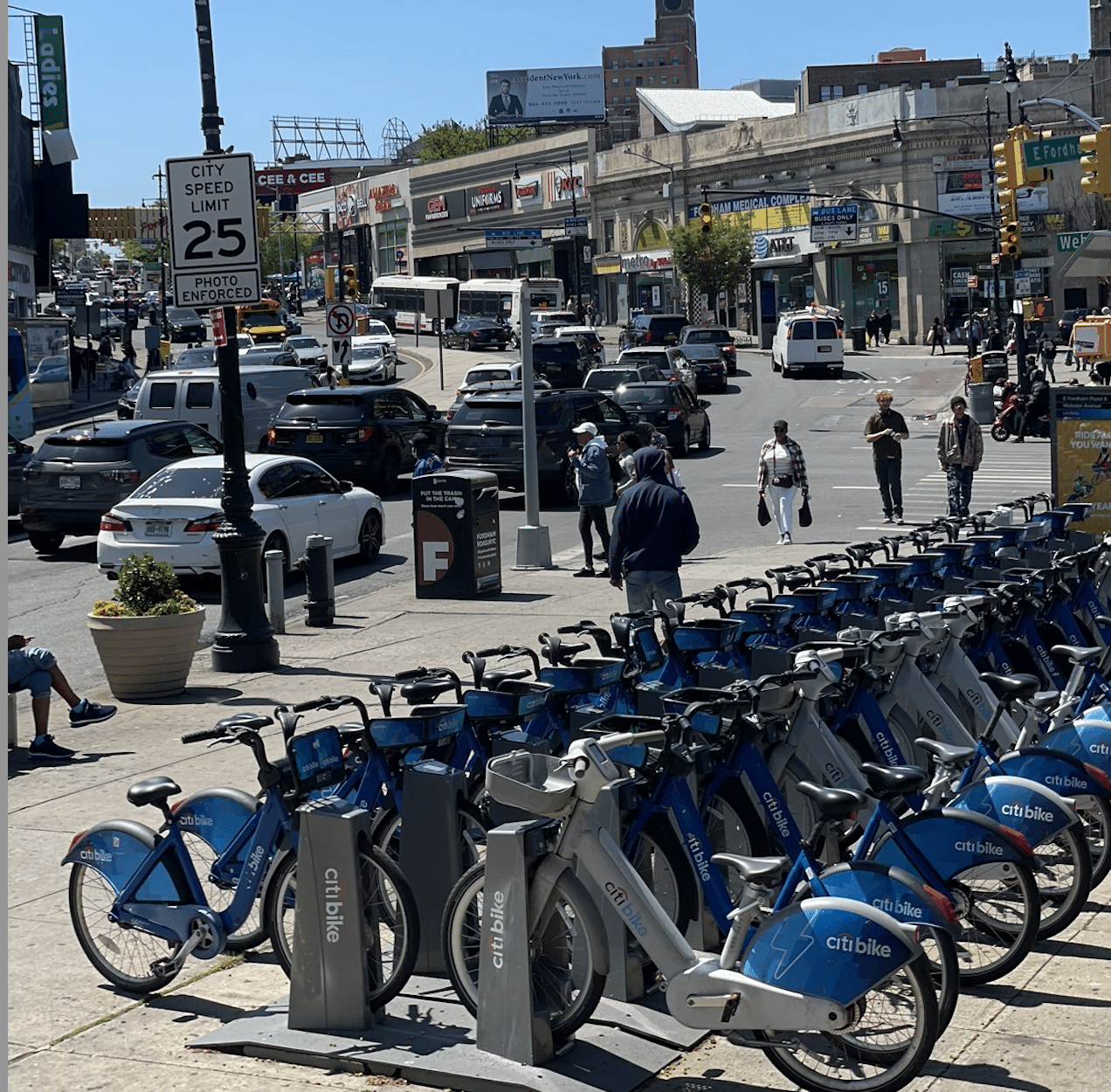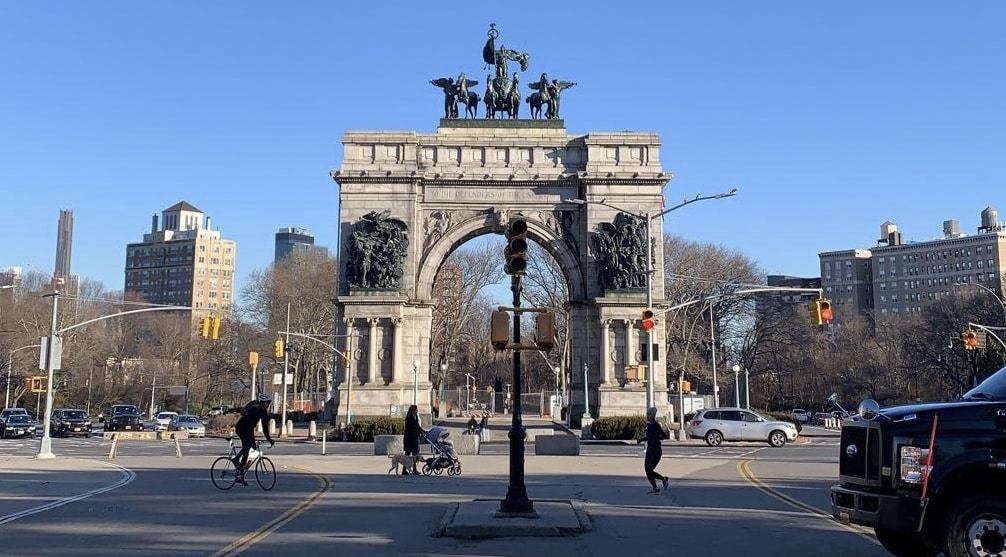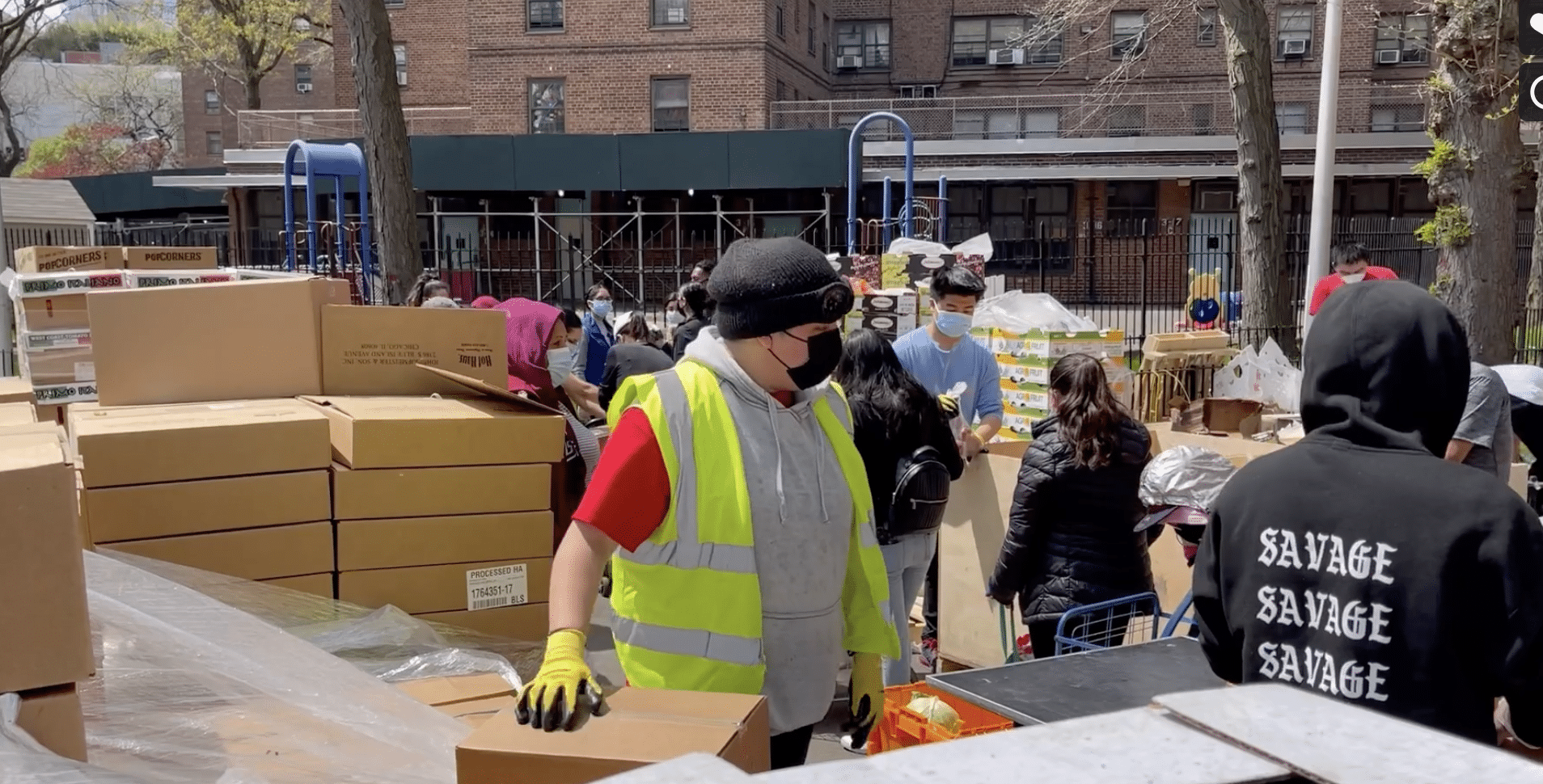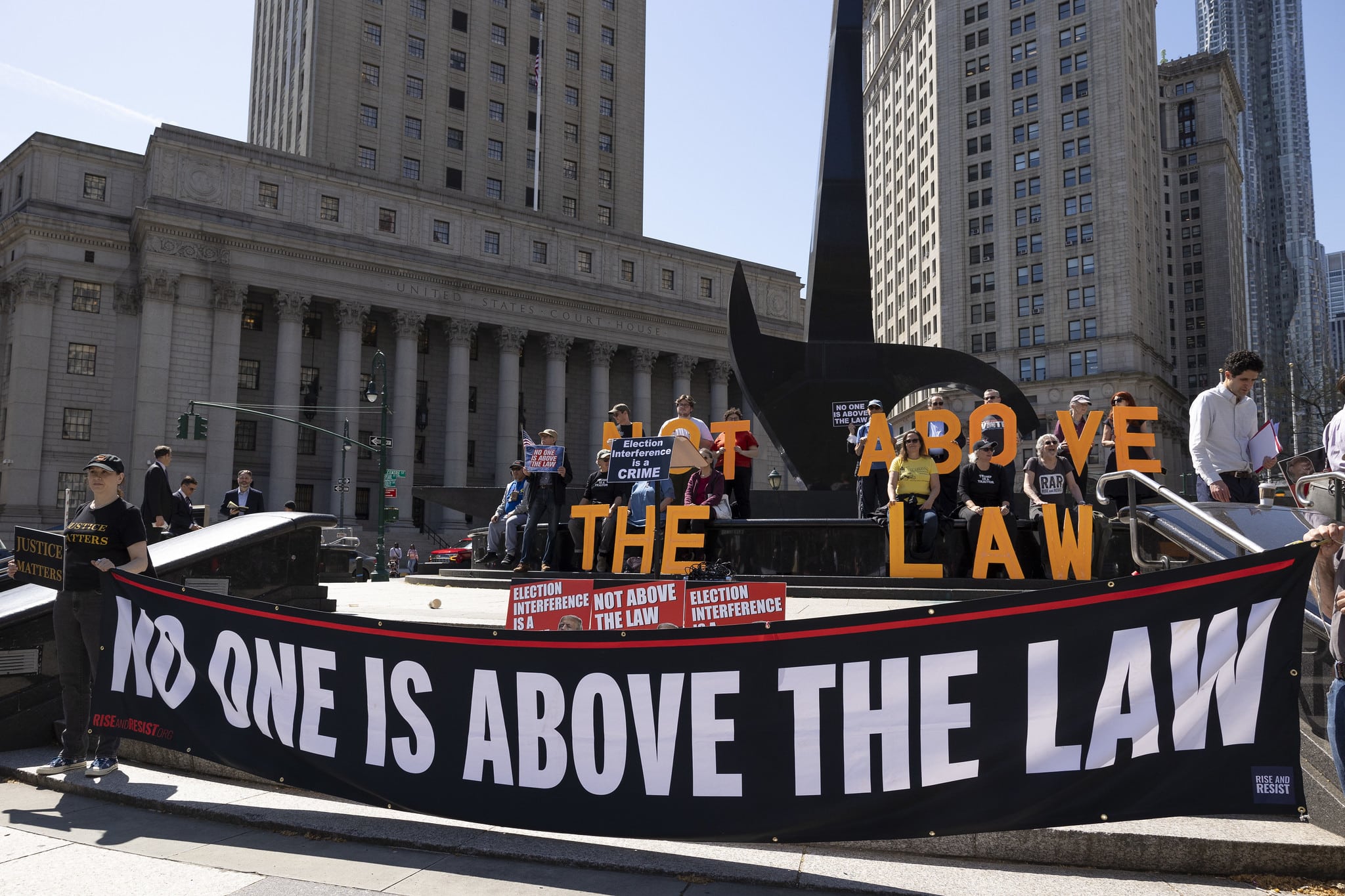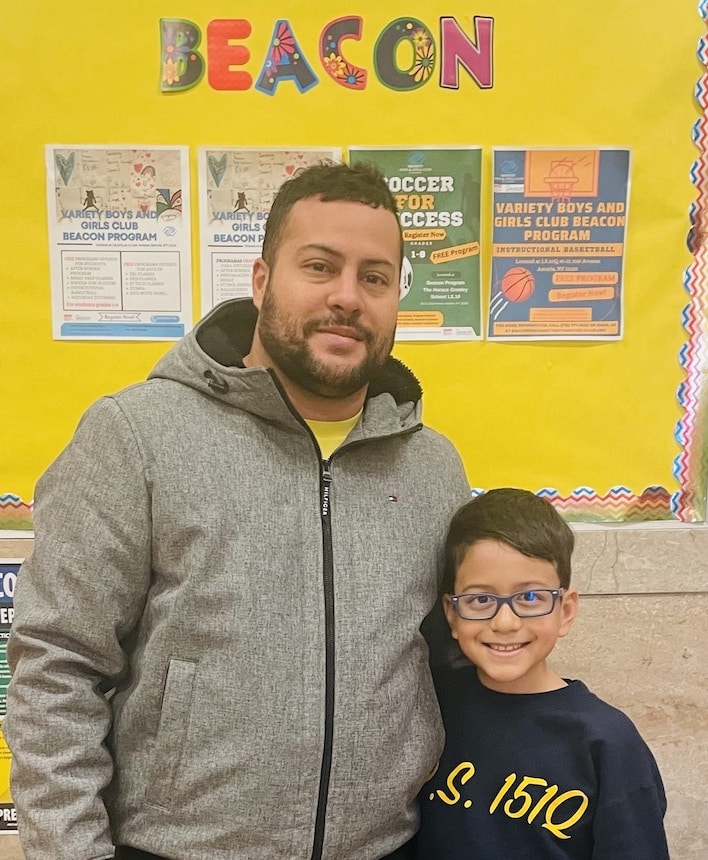Khalil Clark shadow boxes in a park in Harlem.
“Out there, people see a Black kid with a hoodie and think they already know my story,” Khalil said. “But in here, in the gym? I get to write it myself.”
At Fight Back MMA in Harlem, 18-year-old Khalil Clark uses fast hands and sharp instincts to stand out in a competitive field of young boxers. He hopes to qualify for the Golden Gloves of America, the same tournament that helped launch the careers of Mike Tyson, Riddick Bowe, and Zab Judah.
He has a long way to go. Before Khalil can step into the spotlight, he must prove himself in a series of small, local fights known as smokers and amateur bouts. These are unofficial or low-stakes matches where new fighters gain experience and toughen up. These early fights test more than just skill. They challenge a boxer’s stamina, patience, and mental strength.
In amateur boxing, every fighter begins in what’s called the novice class. This is for beginners who are just starting out, and for male boxers like Khalil, it means having at least ten fights. During this stage, he’ll compete against others who are also new to the sport. Every fight matters, and none of them come easy. Walkover wins, where an opponent doesn’t show up, don’t count toward moving forward. Khalil has to actually step into the ring and earn every single win. Moving from novice to open class shows that a fighter has put in the work, faced real opponents, and is ready for the next level. “You don’t just sign up and get a shot,” he says. “You earn your spot. You fight for it over and over until there’s no question you belong in that ring.”
In the meantime, Khalil, a freshman at New York City Institute of Technology (City Tech), manages the demands of college while staying committed to his training. He wakes up before sunrise. He gets out of bed and immediately drops to the floor. He completes sets of push-ups until his arms feel heavy. He follows that with sit-ups to build core strength and pull-ups that test his upper body. He lifts weights with focus and finishes his routine before heading to class. His backpack feels heavy with books, but his mind stays fixed on his goals.
School adds pressure, but Khalil does not let it slow him down. On days when he cannot reach the gym, he refuses to rest. He moves his furniture aside and creates space in his bedroom. He stands in front of the mirror and begins to shadowbox. He throws each punch with precision and keeps his footwork tight. He imagines a real opponent in front of him and does not lose focus. Every movement serves a purpose. Even without a ring or a crowd, Khalil finds a way to stay ready.
The Golden Gloves dream stays front and center for him. One of amateur boxing’s top tournaments, it began in 1926 through the Chicago Tribune to give young, often overlooked fighters a larger stage. Over time, it grew into a nationwide competition, with regional winners advancing to the National Championship. Legends like Muhammad Ali, Joe Louis, Mike Tyson, and Sugar Ray Leonard all came through it. Today, young men like Khalil see it as their ticket to credibility, and a chance to prove they belong.
For him, love of the sport began early. He did not start in a ring. There were no bells or cornermen. Only concrete courts, kids with quick hands, and a shared love for boxing that ran through the neighborhood like a current.
“I kept my gloves on me like other kids kept a ball,” he says. “Didn’t matter where I was. If someone said they wanted to work, I was ready.”
He carried his gloves everywhere, stuffed in his backpack next to his school books. They were more than gear. They were part of him. After school, he met up with friends or called anyone down to spar. They found patches of pavement and squared up not out of anger, but out of love for the craft. Like a pickup game, with respect in every jab.
“We went three rounds and dapped it up after. It wasn’t about ego. It was about testing yourself and building each other up,” he said. “I used to fight dudes in the park just to test myself. No wraps. No mouthguard. Just heart. It wasn’t about looking tough. I needed to prove I belonged.”
Those sessions laid the foundation. They brought him to Fight Back MMA, where he met Coach Lamarr Thorton. That gym changed everything. The instinct he built in the park found structure and purpose.
“Coach Lamarr didn’t care where I came from,” Khalil says. “He just wanted to know if I was serious. I showed up every day until he saw I wasn’t playing.”
In the gym, something clicked. He did not have to prove himself. He just had to show up and fight.
Khalil’s older brothers, Christopher and Trey, have always stood in his corner. With their father out of the picture, they stepped up to protect him and keep him on track.
“They always told me I had to think bigger,” he says. “Trey used to tell me, ‘You’re not built for the block. You’re built for something better.’ For a long time, I didn’t believe him. Now I do.”
“Boxing didn’t just teach me how to fight, It taught me how to pause, how to breathe, and how to move with purpose. Now I live the same way. I slow down. I think. Then I move. That’s how I get through.”
Tags: Boxing Coach Lamarr Thorton City Tech Fight Back MMA Gianella Gonzalez Golden Gloves Khalil Clark
Series: Sports
